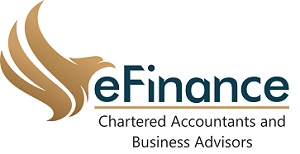We live in an age of financial noise. As such, for the average person trying to build a secure future, it can all feel like standing in a storm of information with no clear direction. This is the moment when a good financial expert steps in. They don’t just offer a service; they become an architect, helping you design a blueprint for a life where your money works for you, not against you. Their real value lies not in knowing all the answers, but in asking the right questions, providing a guiding hand through the emotional chaos of investing.
1.Beyond the Numbers: Defining Your Purpose
Before a single dollar is invested, a skilled financial advisor’s first job is to help you look inward. The spreadsheets and stock charts can wait. The real conversation starts with your life. What does “financial security” actually look like for you? Is it the freedom to change careers?
The peace of mind of a comfortable retirement? The ability to support your family? An expert like Nathan Garries with experience and strong academic literacy will help you articulate these life goals in a tangible way.
2. The Art of the Right Fit: Crafting a Personal Strategy
We’re not purely rational when it comes to money—our decisions are shaped by hopes, fears, and memories. A skilled advisor:
- Listens to your unique story and financial comfort levels.
- Explores how you’d feel if your portfolio dropped significantly.
- Designs a strategy that aligns with both your goals and temperament.
- Establishes checkpoints to measure progress without panic-driven adjustments.
This isn’t about following a generic plan—it’s about a strategy you believe in and can sustain even during volatile times.
3. The Steady Hand: Navigating Market Turbulence
Markets fluctuate, and emotions can be a costly guide. Advisors act as a calm presence, helping you avoid reactive decisions:
- Behavioral coaching: Keeping perspective during highs and lows.
- Automated systems: Removing guesswork from timing investments.
- Adaptive monitoring: Adjusting allocations as circumstances evolve.
- Focus on goals: Reminding you of long-term objectives to prevent impulsive actions.
With this steady guidance, you can navigate turbulence without losing sight of your overarching vision.
4.Building Resilience with Confidence
In addition to risk and return, modern portfolio theory now emphasizes a third and equally critical “R” factor- Resilience. Long-term growth is about consistency, not chasing windfalls. Such moves financial planning from a reactive model to a proactive and adaptable portfolio that withstand life’s uncertainties.
Critical strategies include;
- Diversification: Spreading risk across multiple assets.
- Contingency planning: Preparing for unexpected life events.
- Incremental growth: Celebrating small, steady achievements.
- Strategic reinvestment: Using gains thoughtfully to compound progress.
The focus is on creating a portfolio that’s robust and adaptable—a living structure designed to support you through every stage of life.
In conclusion, a certified financial advisor’s greatest gift is informed strategy and composure. They replace panic modes with confidence and resilience when committing to investments- or even when negating what is on the table. That way, you receive the empowerment to leverage money as a tool for building wealth and experiences, not a source of anxiety.






